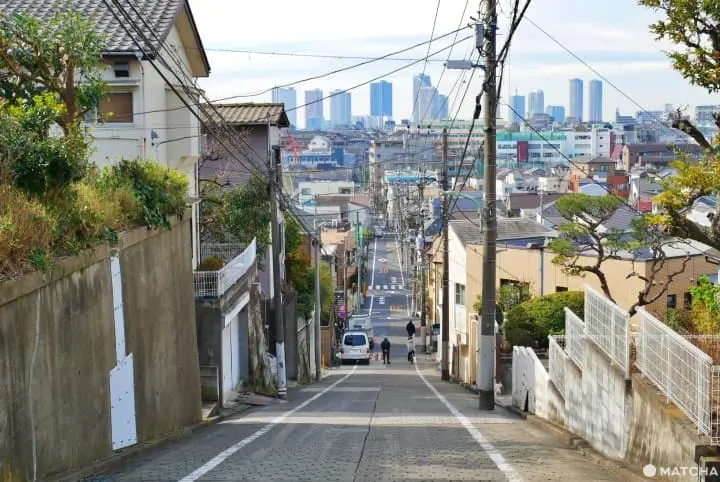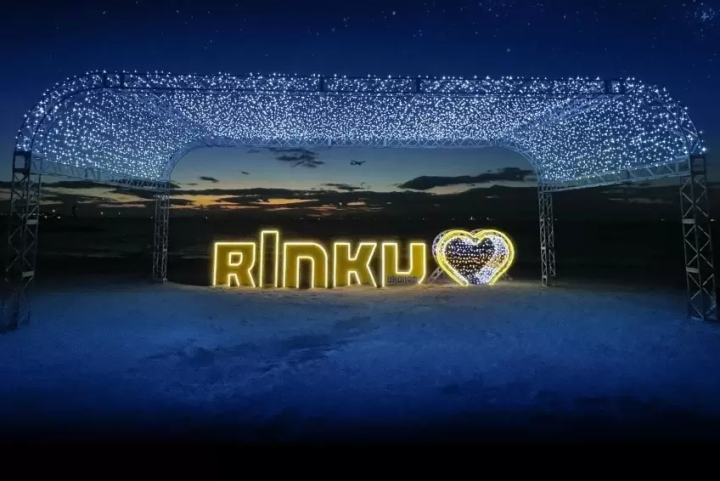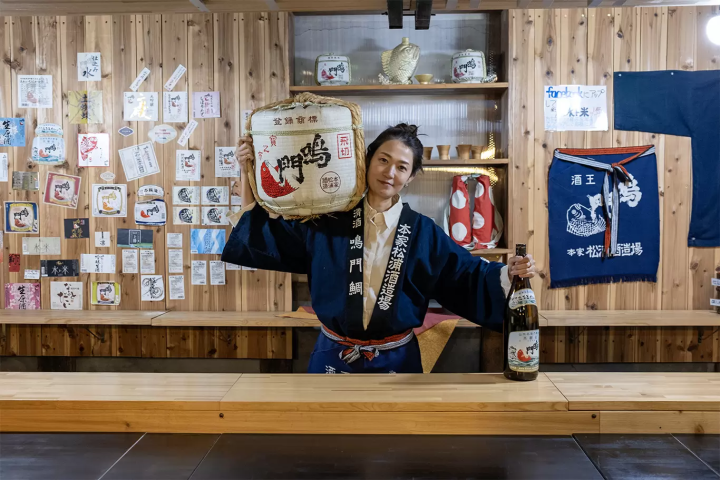9 Famous Tokyo Hills Related To Idol Groups, Anime, And History

Did you know Tokyo has many hilly roads? From slopes that Japanese idol groups are named after, to hilly views famous in anime and dramas, there is hidden beauty in the ups and downs of this capital city. MATCHA introduces nine Tokyo hills that you’ll want to climb and capture on camera yourself.
With cities like Nagasaki, Onomichi in Hiroshima, and Kobe, Japan is home to many hilly cities. There is a unique beauty to these undulating urban slopes found along the oceanfronts and mountainous regions. In a metropolis as large as Tokyo, the terrain changes frequently and there are many rolling hills.
Tokyo is home not only to naturally inclined roads, but also artificial hills––the result of an increased population and city expansion. The terrain itself was modified, adding a number of newly-made hills. As a result, these slopes mingle together with various sights to add new charm and appeal to the capital.
In this article, I—one of MATCHA's Taiwanese editors and self-professed lover of hilly roads—introduce nine of my most recommended hills. I’ll share their history and connection to Tokyo, and why you might want to visit, too!
Tokyo's Hills and Japanese Idol Groups
I adore the scenery of the hills themselves, but I also love the three hilly roads introduced below. These spots became famous for being the origin of the name of well-known idol groups and have since become favorite locations that fans visit.
1. Nogizaka

Nogizaka46 is an all-girl idol group in Japan that initially debuted to rival AKB48, another idol musician group. As their record company was based in Nogizaka at the time of their creation, it became the group's namesake.
Nogizaka was originally called Yureizaka during the Edo Period. Following the Meiji Restoration, military-affiliated structures were scattered throughout Akasaka, another hilly area near Nogizaka. Maresuke Nogi, a general, was also among those that lived here.
After the death of Emperor Meiji, Maresuke Nogi followed his master to the grave through suicide. The parliament then renamed the hill, changing its name from Yureizaka to Nogizaka, in celebration of his achievements.
Nogi Shrine, located next to Tokyo Metro Nogizaka Station Exit 1, is dedicated to Maresuke Nogi and his wife. Hundreds of fans come here to take photos with their Nogizaka46 merchandise.
2. Keyakizaka

Keyakizaka46, the second idol group named after hills in Tokyo, comes from a hill with the same name, Keyakizaka (written in hiragana). The group’s name ended up using “keyaki” in its Japanese kanji character form due to the mistake of a former employee. The company decided to leave the group’s name in kanji when they heard that the order of the strokes to write the name would bring good luck.
So where exactly is Keyakizaka located? This hill is in the center of Roppongi Hills. Both sides of Keyakizaka are lined with high-end brand shops and the TV Asahi headquarters.
Every winter, the trees on both sides of Keyakizaka sparkle with LED illuminations. Tokyo Tower can also be seen in the distance, transforming this hill into a scenic Tokyo winter spot.
3. Hyugazaka

Hinatazaka46, the third idol group in the hilly road series, originally debuted as the sister group to Keyakizaka46 under the hiragana form of Keyakizaka46. However, the group has since been renamed due to their steady rise in popularity.
Their current name comes from Hyugazaka in the Mita area of Tokyo's Minato Ward. The street itself isn’t long. During the early Edo Period, the residence of provincial governor Mori Hyuga-no-Kami from the Tokuyama Domain was south of the hill. The hill thus became known as Hyugazaka.
Minato Ward’s official records state that the hill’s name is read as “Hyuga.” However, the group uses the alternate, but incorrect, reading “Hinata.” Even the way it’s pronounced is interesting, isn’t it?
Tokyo Hills Featured in Film
Japan’s hilly roads often appear as filming locations in movies and drama shows, later becoming spots that fans visit in-person.
4. Yukigaya-Otsuka

This hill is in Ota Ward in southern Tokyo, on the eastern end of the Musashino Plateau. Nearly half of Ota consists of uplands, resulting in hilly roads of various sizes dotted throughout the residential area. Yukigaya-Otsuka is one such hill that has appeared in many television drama series.
Some of these include “Love That Makes You Cry” (2016), a popular drama show that aired on Monday nights, with young actress Kasumi Arimura, and “Ossan’s Love: In the Sky” (2019) starring actor Kei Tanaka. “Stepmother and Daughter Blues” (2020) featuring Haruka Ayase, was also filmed here.
The group of high-rise buildings in the distance often appears on television as the view of central Tokyo. It’s actually a high-rise condominium complex near Musashi-Kosugi Station in Kawasaki, Kanagawa Prefecture!
5. Suga Shrine Otokozaka

The stairs that appeared in the final scene of the animated film “Your Name.” is Suga Shrine’s Otokozaka near Yotsuya Station. “Your Name.” became such a huge worldwide hit that the shrine in this residential area also became a popular sightseeing spot.
Some of the fans who visit have fun recreating the final scene where Taki and Mitsuha, the main characters in the film, walk past each other.
6. Tabata Station South Exit

“Weathering with You,” another film by “Your Name.” director, Makoto Shinkai, also features a small hill road in its final scene like its predecessor. This road is located at the south exit of the unmanned Yamanote Line Tabata Station.
The spot where Hina, the film’s beautiful female protagonist, was found, immediately became a popular location. In the film, the road seems long, but is actually only about 130 meters in real life.

Left of the road is the elevated Shinkansen (bullet train) line. You can capture the exact same scene from the film with your camera when the Shinkansen passes by.
Tokyo-esque Hill Scenery
What kind of scenery do you imagine when you think of Tokyo? For me, I think of high-rise buildings and Tokyo Tower. The next few places are three of my recommended hills that portray the iconic image of the capital.
7. Sendaizaka

Sendaizaka is located across from Hyugazaka. Located at the top of this hill road are the embassies of several countries, and a neighborhood police station. The area was previously known for its Sendai Domain residences.

Climb up the hill and look back to see Tokyo Tower and Tokyo Midtown. Add in the high-rise buildings on this road and an iconic view of Tokyo will appear.
8. Kagurazaka

Exit Tokyo Metro Iidabashi Station onto the famous Kagurazaka. Both sides of this road are lined with small stores that make up this lively, cozy shopping district. On holidays, this street is closed off to vehicles, so pedestrians can roam freely.
Akagi Shrine is located on this hill. The main shrine is very stylish and was designed by the famous Japanese architect, Kengo Kuma. While standing on Kagurazaka, look behind you and you’ll see streams of people with the high-rise buildings in the distance, creating a familiar and exciting Tokyo city vibe.
9. Omotesando

Omotesando is one of many famous places that represent Tokyo. This long hill road stretches from Harajuku Station to Omotesando Station, and is lined with high-brand shops on both sides. The avenue has a luxurious and trendy atmosphere.
Trees and greenery is planted on both sides of the road, allowing pedestrians to experience the seasonal changes as the leaves change in color with the seasons.
You’ll also find several hilly roads in the back streets; venture onto these smaller roads for a fun experience different from typical Omotesando.
Climb the Hills of Tokyo
These nine hilly roads are what make Tokyo’s terrain is so interesting, and the stories behind them are also unique. In Japan, areas that contain the words “zaka” (hill) or “ya” (valley) in their names were most likely once hilly roads or valleys.
The next time you come to Tokyo, don’t just shop, but also explore these inclines and slopes, too. Quietly take in the scenery below you from the top, and you might just discover something new about Tokyo.













































![[Niigata] Skiing and snowboarding are just not enough! Fun snow spots for parents and children](https://resources.matcha-jp.com/resize/720x2000/2026/01/29-256901.webp)


![[Gunma, Nakanojo] Experience Japanese history in a wooden school building from the Meiji era](https://resources.matcha-jp.com/resize/720x2000/2025/12/25-254022.webp)
